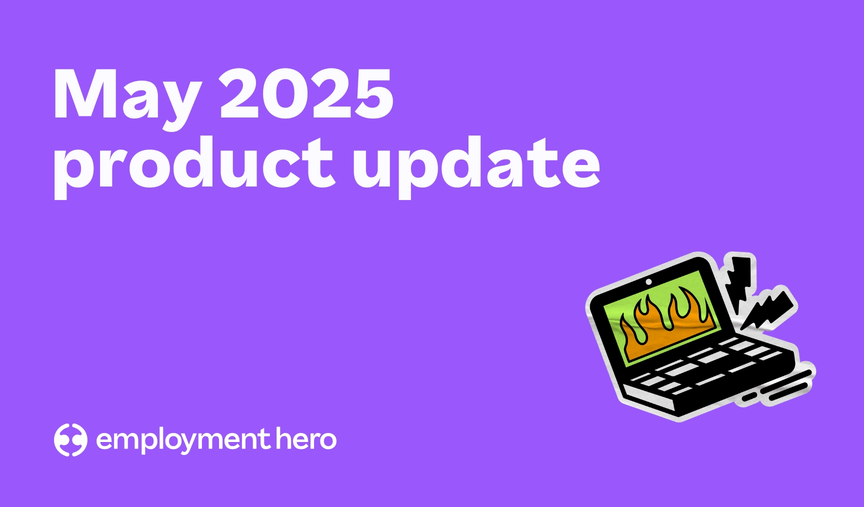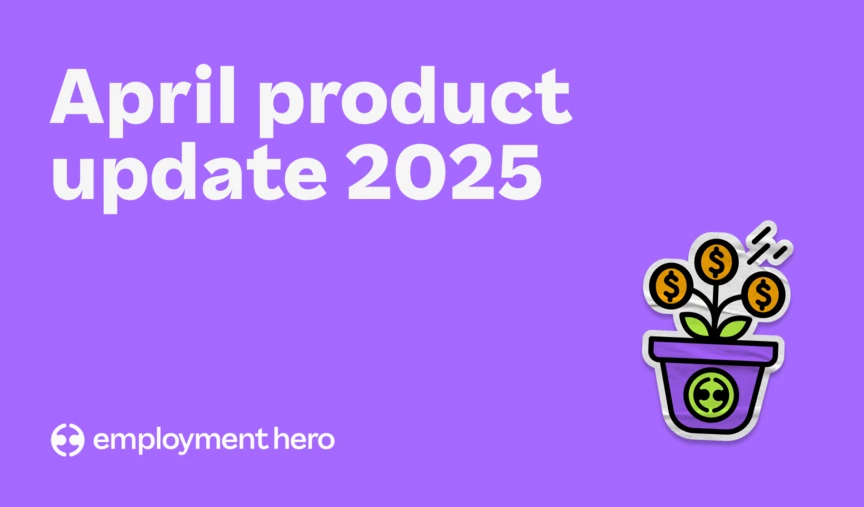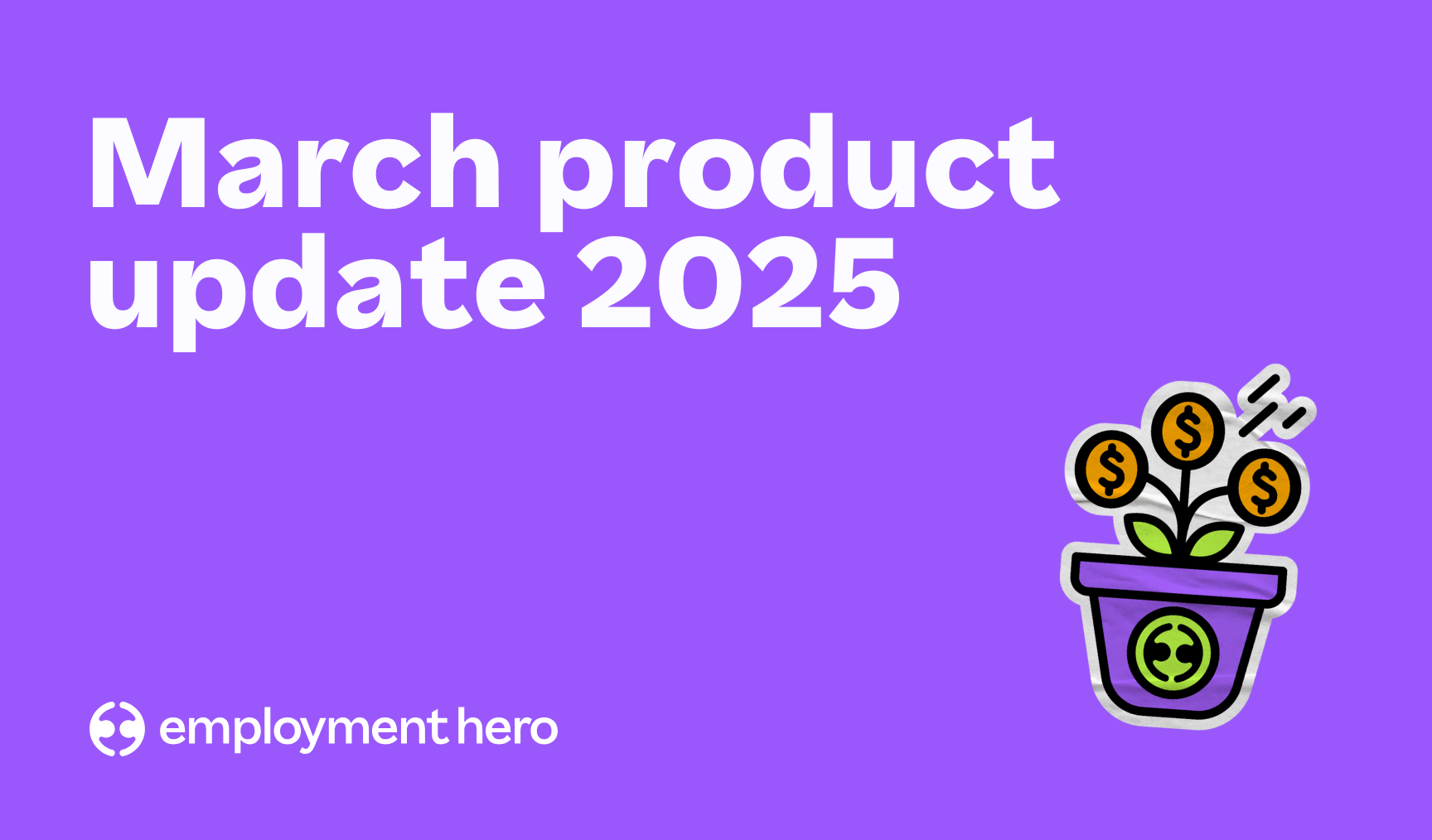What is a Reference Check For Employment?
You can’t deny that the thought of hiring someone new in your business is exciting, but how can you feel confident you’re choosing the right candidate? Whether you’re seeking a personal reference, professional reference or character reference, we’ll be sharing all you need to know about making a confident hiring decision.

Contents
You can’t deny that the thought of hiring someone new in your business is exciting. One more set of hands to get through your workload, a fresh pair of eyes to look at existing problems, and lots of new and innovative ideas to help grow your business.
But while the thought of hiring someone new for your team is an exciting prospect, how can you have high confidence the successful candidate will be everything they said they were in the interview?
Recruitment and hiring is an expensive process and there are many hidden costs associated with it. The time spent hiring, the salary of your recruitment team, referral bonuses, online job board fees, and recruitment software are just some of the costs that come with a new hire.
The result? Up to $5,000 in hidden costs.
With so much on the line, you don’t want to run the risk of bringing a bad hire into the business – and reference checks can help you minimise that risk. Whether you’re seeking a personal reference, professional reference or character reference, we’ll be sharing all you need to know about making a confident hiring decision.
What is a reference check?
A reference check is a way to check if the job candidate is actually who they say they are. Often occurring at the end of the hiring process, it allows hiring managers to cross-reference that the candidate has the technical skills, employment history and qualifications they’ve stated throughout the interview process.
Reference checks can be done via phone, email or by using reference checking software.
Pro tip: Use these talent sourcing strategies to expand your candidate pool.
How are reference checks done?
Checking references involve hiring managers contacting the candidate’s previous company, teacher or school prior to presenting an offer to learn more about the candidate’s work experience, education and skills.
A hiring manager may also ask about any strengths and weaknesses, productivity levels, communication skills and attendance. Put simply, it provides an overall sense of what it would be like to have the candidate join the team.
Pro tip: Download our recruitment guide to get a step-by-step breakdown of the hiring process.
Why are employee reference checks done?
Employers may wish to conduct a reference check when they find it difficult to make a decision or to further cement their chosen candidate before issuing an offer of employment.
It also allows them to identify any potential red flags that may have been missed during the interview process. Conducting a reference check can also help reduce the risk of unconscious bias in your hiring decisions.
Are reference checks done at the start of the interview process?
Hiring managers can either ask for the reference check during the interview or after you’ve made the job offer. The best time to ask for reference checks is after interviewing the candidate, and you’re feeling confident they could be the right fit for the role.
By this stage, you should have a good understanding of their skills and experience, and conducting a reference check can help validate your decision.
If you’re not sure about the job candidate, or you want to compare them with other candidates, it’s best to wait until after you’ve made the job offer.
This way, you can use the reference check as a final decision-making tool before extending an offer of employment.
The reference check process
1. Obtain contacts details of the references from your shortlisted candidate(s)
During the recruitment process, it’s important to ask your shortlisted candidates to provide contact details for their referees. These may be current or previous employers, managers, mentors or teachers and can help provide a clearer picture of the candidate’s character and suitability for the open position.
While some applicants may include written professional references or contact details on their CV or resume, it’s important to let your candidate know that you’ll be contacting those listed on their application. This allows them to notify the referees to be prepared for the call or email.
Pro tip: Have our candidate experience checklist handy for a guideline of the whole hiring process
2. Make a list of questions you’d like to ask the referee
The goal of a reference check is to better understand what it would be like to work with the candidate. The questions you ask can help you feel more comfortable and confident with your decision, so it’s important to prepare a list of questions.
You can also use this as a chance to verify areas relating to their experience or provide clarification on any areas of concern.
Focus on asking open-ended questions about the candidate’s skills and job responsibilities to see if they’re a good fit.
Reference check questions you should ask
- What was the job title of the candidate?
- What was the working relationship you had with the candidate?
- What was the date of their employment at your company?
- Can you please talk me through the role and responsibilities the candidate had?
- How would you describe their job performance?
- Can you provide me with an example of the candidate’s strengths and weaknesses?
- Did you ever have any problems or concerns with their work performance?
- Did you ever have any concerns with the candidate’s work ethic?
- Why did the candidate leave your business?
- If the opportunity arose to re-employ the candidate, would you?
- Do you have anything else you’d like to add or tell me about the candidate?
3. Contact the referees
When it comes time to contact referees, you want to be as transparent and honest as possible. Clearly state who you are, the business you work for, the details of the role and the candidate you’re conducting the reference check for. You should also let them know that they’ve been provided with their contact details via the candidate.
Be sure to ask if the referee feels comfortable answering the questions and check that you have them at a good time. You also want to let them know how long the call or questions will roughly take.
Once you feel prepared, you want to choose the communication method. Will you contact them via phone call? Will you email them? Will you use reference checking software?
Whatever you choose to use, you want to make sure the reference check process is as easy as possible for the referee, and don’t forget to take detailed notes!
Dealing with sensitive information? Don’t forget a background check
Once you’ve completed your reference check and you’ve made a job offer of employment, it’s important not to forget a background check before your new team member starts – especially if your business is dealing with sensitive data. But what exactly are background checks, and how does it differ from a reference check?
A background check is a process where an employer can find out a new employee’s disclosable history. The goal of background checks is to confirm that the person you’ve hired is actually the person they claim to be.
The background check includes a summary of an individual’s police history (in Australia). This may include court appearances, convictions and any penalties or sentences.
The main purpose of a background check is to add an additional step in the recruitment process to help you hire the right people for your business. It can help give you peace of mind and trust in the person that will be handling confidential information or performing specific tasks.
It’s another way to help you mitigate the risk of a poor hire, which can be a costly process for any business.
Note: Background checks can also be referred to as a national police certificate, police clearance or national police clearance.
Feel confident with reference checks
As the candidate’s prospective employer, you might find yourself talking to their previous manager, current co-workers or personal references.
Whoever you find yourself talking to, doing your due diligence can help you find useful information that will help you feel more confident about your hiring decision. So, go on – go find your unicorn!
Streamline your recruitment process with Employment Hero
Managing recruitment, interviews, references and onboarding can be a time-consuming task. We make the administrative side of hiring and recruitment a breeze with our cloud HR system, with integrated recruitment automation features.
If you’d like to learn more about how you can save time, transform your hiring process with an applicant tracking system and give your candidates the best experience possible, get in touch with one of our small business specialists today.
Related Resources
-
 Read more: Product Update: May 2025
Read more: Product Update: May 2025Product Update: May 2025
Follow our May 2025 product update as we share all of the latest and greatest features we’ve released over the…
-
 Read more: Product Update: April 2025
Read more: Product Update: April 2025Product Update: April 2025
Follow our April 2025 product update as we share all of the latest and greatest features we’ve released over the…
-
 Read more: Product Update: March 2025
Read more: Product Update: March 2025Product Update: March 2025
Follow our March 2025 product update as we share all of the latest and greatest features we’ve released over the…








